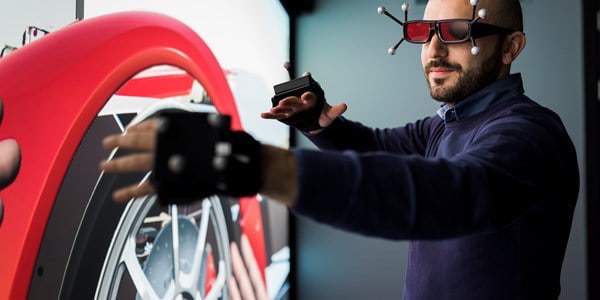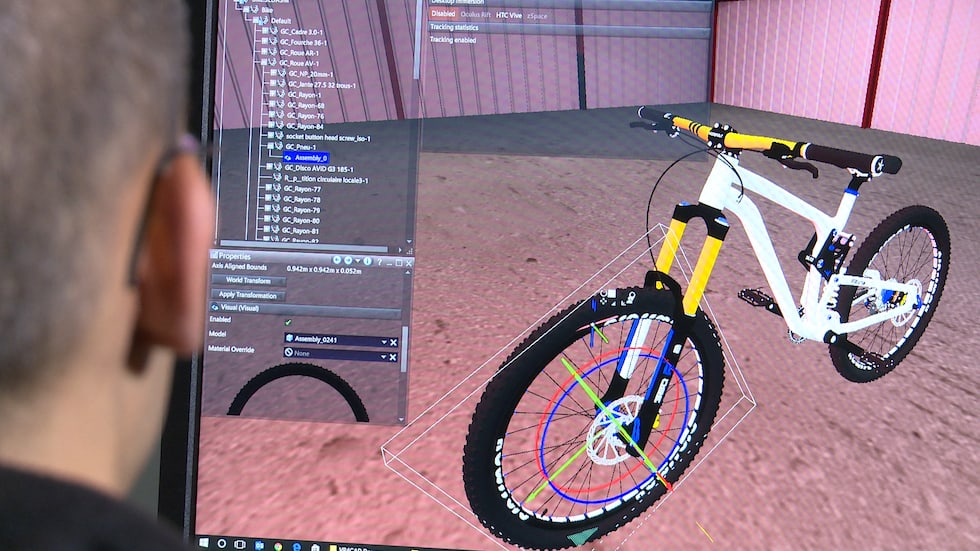
The Virtalis ActiveWall features a Christie Digital Boxer 4K projector and an ART 6DoF tracking system. The adjacent suite for VR desktop working contains a zSpace and an HTC Vive-based ActiveSpace. Virtalis has also provided student licences of its Visionary Render and GeoVisionary software.
The University of Liverpool in London campus caters exclusively for postgraduates and those pursuing Continuing Professional Development Programmes.
All the London courses are delivered by University of Liverpool staff and partners and benefit from the University’s research, but allow the University to additionally foster its links with London-based employers, professional institutes and policy-makers based in the capital.
Lynn Dwyer, business integration manager, Virtual Engineering Centre at The University of Liverpool commented: “Our new VEC@London facility is multi-disciplinary, though there are core subjects including architecture, urban planning and industrial design. By working closely with Virtalis, we are exposing our students to VR technology for them to take into their research, as well as their future working lives. We know that VR is a safe place to take risks.”
Combining Virtalis’ technological know-how and their latest VR hardware and software alongside the technical and academic expertise from the University, the partnership will become a premium VR facility and professional development experience in the heart of London.
The University of Liverpool’s London campus will provide the Manchester-headquartered company with demonstration and events space in London.
“Our links to the University of Liverpool, both within its Engineering Department and through the Virtual Engineering Centre (VEC) at Daresbury, stretch back almost a decade”, said Virtalis MD, David Cockburn-Price. “Our technology has been embedded into both the Formula Student and ARION programmes, so we were proud to help put Virtual Reality (VR) at the heart of the University’s new London base”.

In a related development, Virtalis recently announced the launch of VR4CAD at the University of Liverpool’s London Campus.
Aimed at CAD engineers as a gateway to more advanced VR systems, VR4CAD converts CAD models from a range of CAD packages - including Autodesk Inventor, CATIA V5, Unigraphics NX, and CreoView - into full 3D VR and can save viewpoints, annotations and snapshots. VR4CAD is also capable of ambient occlusion and shadowing with reference objects.
Cockburn-Price said: “With the rise of low-cost HMDs like Oculus Rift, the HTC Vive and HoloLens, plus desktop VR like zSpace, VR is finally moving into the everyday within engineering.
“Workstations and graphics cards have been tumbling in price while soaring in performance. All of this has led to the perfect storm for VR, but the final piece of the jigsaw has been the lack of professional VR software with which to create content.
“Our high-end Visionary Render software boasts a blue chip user list, but is out of the reach of most. Virtalis therefore decided to make an accessible and affordable version that will enable people to take advantage of the falling cost of VR hardware.”





Poll: Should the UK’s railways be renationalised?
I _do_ remember British Rail - and that it was <i>literally</i> a national joke https://youtu.be/zV2lmSDKvO8